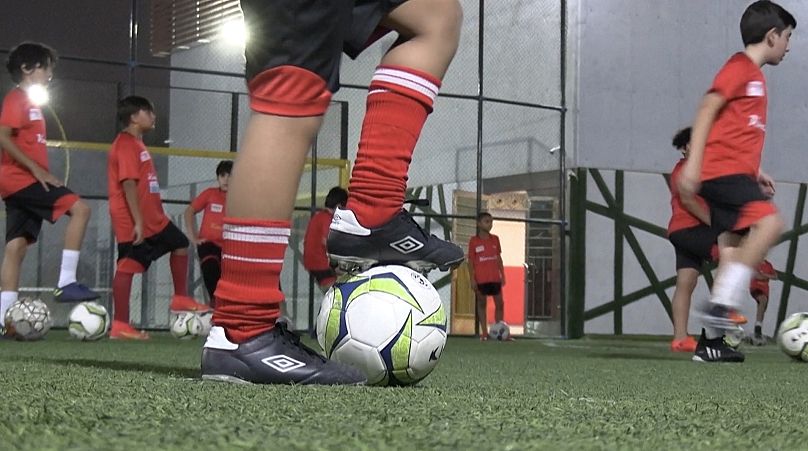Football is one of the world's most lucrative careers, but what does it take to succeed at a football academy?
The world of professional football is often held on a pedestal and viewed as one of the most illustrious and glamorous careers on the planet. The lives of the world's top players are closely watched with admiration and, sometimes, jealousy.
But what people don't see is the years of dedication and sacrifice that have led football players to their moments of glory. The vast majority of this dedication comes in the years playing at an academy, an often cutthroat environment whose mission is to find the next generation of top players and give them to the world.
 ADVERTISEMENT
ADVERTISEMENT
 ADVERTISEMENT
ADVERTISEMENT
According to research conducted by The English FA in 2015, the former FA Head of Talent Identification, Richard Allen, revealed that less than 0.5% of the players aged under nine that sign for professional teams go all the way to play for the first team. There could be hundreds of footballers with world-class potential who find themselves in the wrong place at the wrong time and slip through the net due to circumstances other than purely their footballing ability.
There are good examples of household names almost being victims of this but managing to squeeze through in one way or another. Ronaldo Nazario, known to many as the 'original' Ronaldo, almost lost his career as a child because he couldn't afford the fare for an hour-long bus ride to his trial with Flamengo. Swedish international Zlatan Ibrahimovic struggled to get picked up by clubs until a lower-league Brazilian club in Rio de Janeiro, São Cristóvão, took a chance on him.
One of the world's top academies is in Merseyside, at Liverpool Football Club's state-of-the-art academy complex in Kirkby. The academy is responsible for producing some of football's most legendary talents, including Champions League winners Steven Gerrard and Jamie Carragher, Ballon d'Or winner Michael Owen and more recently, Premier League winner Trent Alexander-Arnold. But these talents can only be produced and developed at a facility and club with incredibly high standards.
"The 'Liverpool way', to me, was this," revealed Neil Mellor, former Liverpool player, "you have to do the simple things perfectly. The simple things like pass, control, and move but they had to be done perfectly. These are the basics, the basic demands of a football club at the elite level."
With the pressure so high from a very early age, it's no wonder some young players aren't mentally equipped to deal with it. A significant issue, however, is how players released from football clubs deal with getting cut from the academy.
In 2022 fans were given never before seen access to the academy of a Premier League club, Crystal Palace, in a UK documentary series aired on Channel 4. Focusing on young academy hopefuls, the pressure on the players was apparent. Many players spoke about wanting to provide for their families if they made it to the first team, but most didn't get to live that reality. But clubs like Crystal Palace have dedicated 'after-care' support teams, who are experts in helping players with their mental health after being released and help to get them accustomed to the fact they didn't achieve their dreams.
There is a greater focus now on after-care, but there's also a tremendous pressure to find that next superstar and get one over on your rivals," explained Ryan Baldi, author of 'The Dream Factory'.
"I would just hope that the attention remains on the aftercare element because they are just children. We think of them as football players, but these are young children who need to be cared for and looked after in ways that aren't going to be damaging."
However, the infrastructure that is now being put into place by top clubs is a credit to how the industry is becoming more empathetic to the ones who, in the end, didn't make it. With the amount of money invested in the development of future players and the desire of young kids to play at the elite level being higher than ever, the game's future is clearly in good hands.













